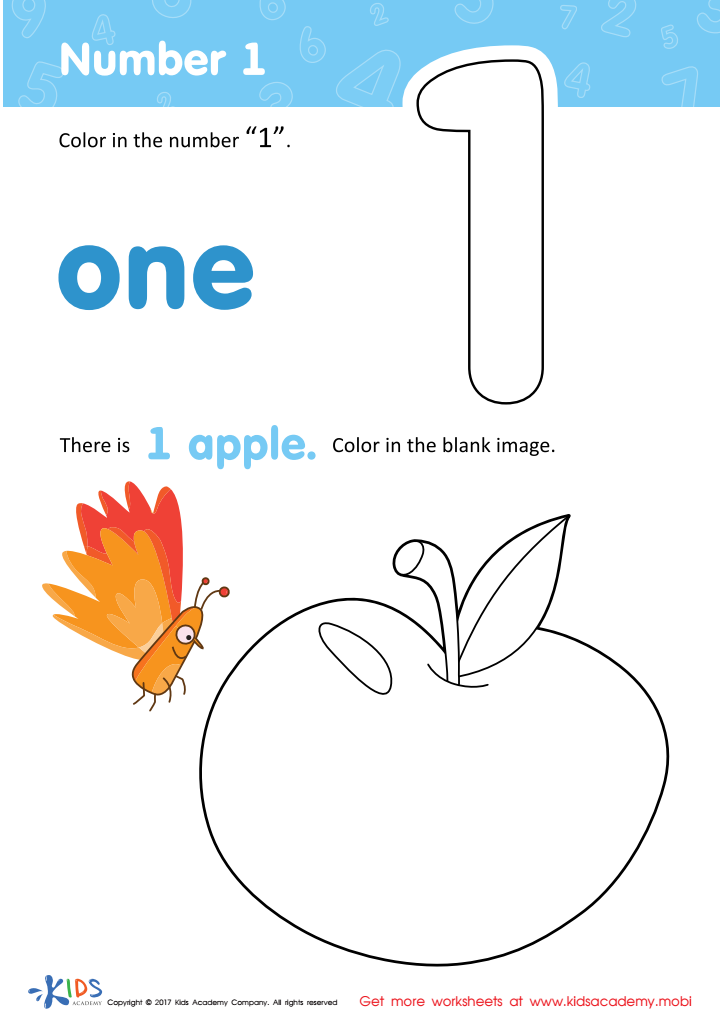Writing practice Extra Challenge Worksheets for 3-Year-Olds
3 filtered results
-
From - To
Explore our engaging "Writing Practice Extra Challenge Worksheets for 3-Year-Olds," designed to enhance fine motor skills and encourage early literacy development. These worksheets feature fun activities that motivate young learners to practice writing letters, numbers, and simple words, using colorful illustrations that capture their attention. Each worksheet is tailored to match the developmental needs of 3-year-olds, making learning enjoyable and effective. Perfect for home and classroom use, these resources offer an excellent way for parents and educators to support children's writing journey. Elevate your child's writing skills and foster a love for learning with our specially crafted worksheets!


Letter A Tracing Page


Fairy Tale Worksheet: Count and Classify with Rapunzel


Number 1 Printable
Writing practice is crucial for early childhood development, and implementing extra challenges for three-year-olds can significantly enhance their learning experience. At this age, children are at a critical stage in their cognitive development, and engaging them in writing activities fosters not only fine motor skills but also creativity, expression, and critical thinking.
Parents and teachers should care about supplementary writing challenges because they promote early literacy skills that form the foundations for future academic success. When children practice writing, they gain better control of their hand movements, helping to develop the muscles needed for holding a pencil and forming letters. Furthermore, writing activities can enhance vocabulary and comprehension as kids express their thoughts and ideas more clearly.
Extra writing challenges encourage children to think outside the box and form connections between words and their meanings. Such activities provide opportunities for children to express their feelings, experiences, and imagination, which boosts their confidence.
Involving parents and teachers in writing practice sets a supportive environment where children feel motivated. Thus, fostering a love for writing early on can instill lasting benefits that extend well beyond these formative years, impacting their educational journey and self-esteem.

 Assign to My Students
Assign to My Students














